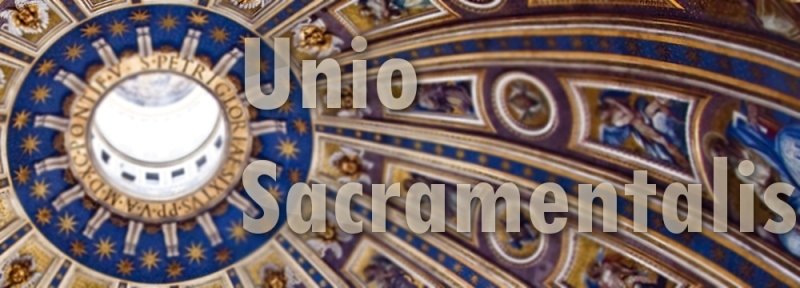Well, sort of. While walking to the park, he got carried away trying to decide if he should go back and put sugar in his coffee when he walked into a girl. They both fell down but were more or less OK, although he hit the ground so fast that all of a sudden all he saw was sunlight, and he thought that he had been blinded by divine light. "But I'm not ready," he said after he'd reached his favourite bench (having apologized hastily to the girl in question and running the rest of the way). "But then again, when was anyone ever ready for what really matters?"
Things seem to be moving so quickly for me, even though my life itself is in that temporary stasis before the start of every quarter. It's my own fault, though, for putting off a very burning question for far too long. The longer I hang around, the more I realize that it's going to be impossible for me to dismiss Rudolf Bultmann's theology without addressing it head on, but what frightens me is that, the more I acknowledge that I disagree with it, the more it compels me.
The one topic that is really getting to me right now is the subject of the Resurrection. As a lot of you know, I've been spared most of the crisis that people face on the subject of miracles by a strong acceptance of the fact that God does what he wants, but it is the other side of Bultmann's argument that is getting to me. I realized while I was back home spending time with the more fundamental of my theological friends that they place primary importance on the Resurrection and not the Crucifixion. Now, I've spent a large amount of time in the Gospel as of late, and the one thing that I've taken away in this reading is something that Bultmann stressed -- that the Crucifixion is the important element. Christ died for our sins, he was born to die, he was the sacrificial lamb. It's not that he was resurrected for our sins (that doesn't even make sense when I think about it). The notion of the Resurrection is, by and large, another sign of Christ's authenticity, much like his lineage or the Virgin Birth.
And to be quite frank, I would follow Christ with no less vigour if there was no prophecy surrounding his being. It isn't an old prediction fulfilled that compels me to take up the Cross, it's the truth of the Word, it's the power of the personage of Christ, of his life, of his action as the perfect incarnation of his teachings. Don't get me wrong, though, by believing that I don't believe in any fulfilled prophecy -- but I see it more as a sign for those who need it. Paul needed no such sign, though, and neither do I. The life of Christ is more than enough for me, and there's nothing to boats about that, either. It's simply a matter of in which manner a person best hears the call, and I hear it in his life, not in the fulfilment of a prophecy.
But I digress -- what really begins to worry me is the notion of the Resurrection as a physical, historical event when juxtaposed against the importance of the death. Namely, when the body dies, it begins to decompose. It's death. The notion of re-animation is a bit absurd, because you either die or you don't -- to come back from death is to not have died. Furthermore, and most troubling to me, is that the idea that Christ walked to the Cross knowing that he would be physically resurrected is like walking into a fight knowing the other guy's going to throw it. Christ's death has to be the perfect sacrifice to atone for the sins of the many, and a death like that doesn't fit the bill. He needs to have actually died, to have quit this mortal coil, and the more I think about it, the more that calls for a spiritual, non-historical, resurrection. It doesn't rely on an empty tomb, but it's far more meaningful when I think about it, than any returning body. Paul would seem to support this, in a way, as he considers himself an Apostle because he saw the Resurrected Christ, though he experienced the personage of Christ rather than seeing some re-animated corpse. As misguided as the internet meme "Zombie Jesus", it sort of sums up what I'm talking about. If I'd seen the Christ in a bodily Resurrection, I'd have thought he never died. But a spiritual resurrection, one of a heavenly nature, would be the clinching proof that he was The Christ.
It's just that, the more Bultmann sinks into me, the more I worry about adopting his entire theology, which creates in me a great anxiety (as Bultmann thinks it should). But Christ is the King of Peace, and His doctrine shouldn't breed in men an anxiety about their lives, but inspiration and hope. And without a notion of the eternal soul, where then is God's justice? His wisdom? His mercy? I can't find it anywhere, least of all where Bultmann says it should be, and so I sit here, in an odd position. But at the same time, I am filled with wonder, that in the midst of all this confusion, my only wish is that it was Sunday, that be singing songs of praise. For now, I will be still, and know that He is God.
Aquinas on emotion, pt. 2 (ST 2.23)
4 years ago




